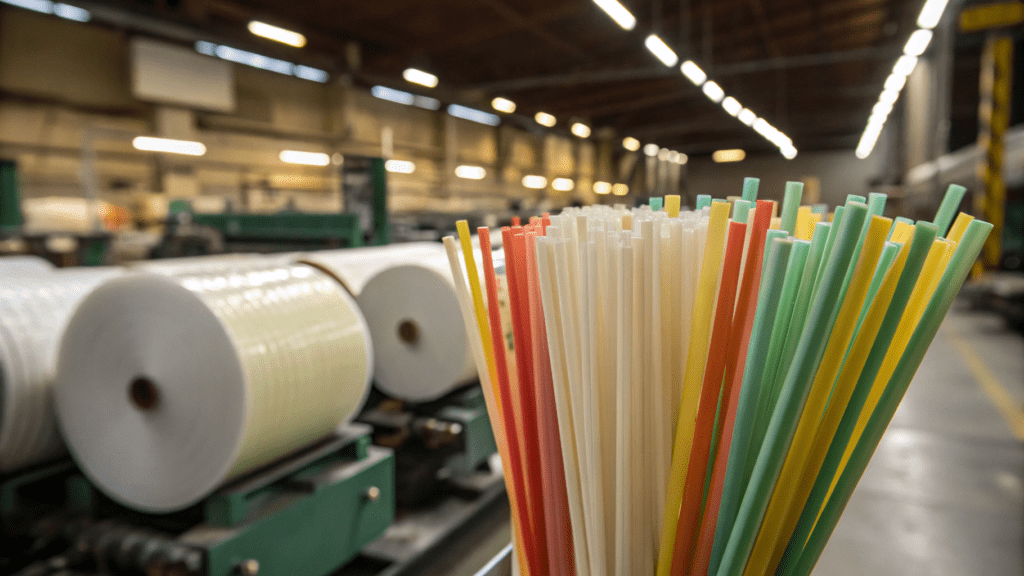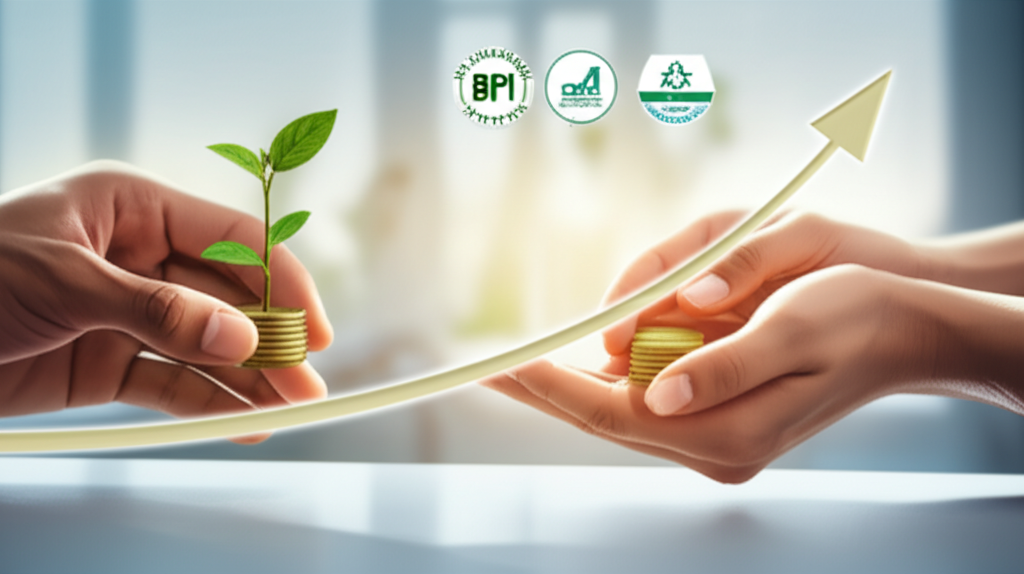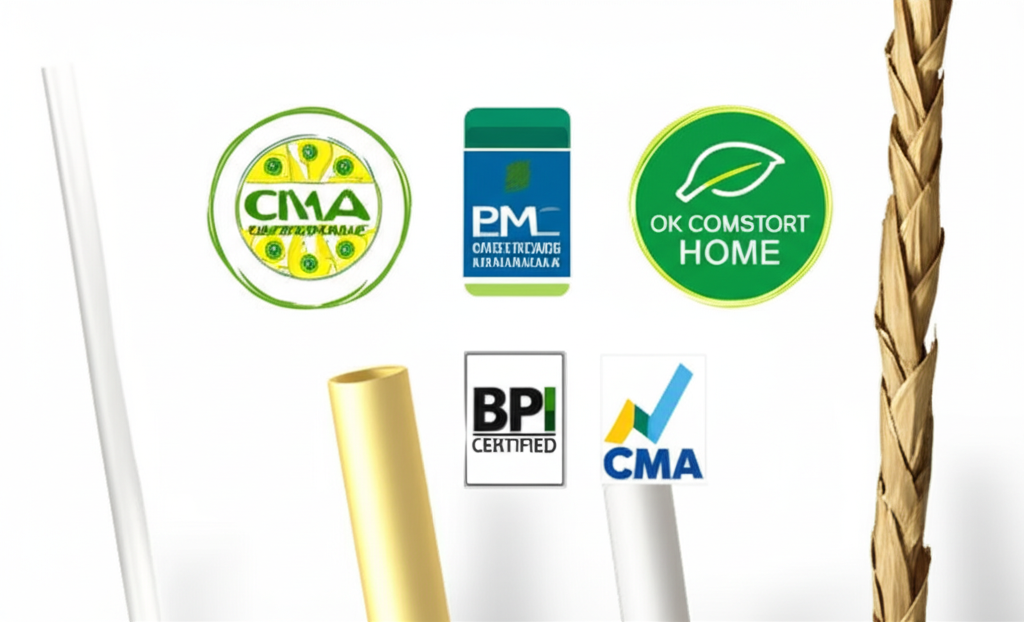The corporate world is at a pivotal moment. Far from being a niche concern, environmental responsibility has become a core expectation for businesses, driven by increasingly eco-conscious consumers and stringent global regulations. For sectors like hospitality, foodservice, and retail, this green imperative often translates into a search for sustainable alternatives to single-use plastics. Compostable solutions, such as straws, are now essential, yet decision-makers frequently grapple with the perceived trade-off between environmental commitment and financial viability. The common apprehension is that adopting eco-friendly options inevitably leads to higher procurement costs or compromised product performance. This post cuts through that misconception, revealing how to strategically source certified compostable straws that uphold your quality standards while simultaneously optimizing your budget. It provides a comprehensive roadmap for business leaders aiming to achieve both robust environmental stewardship and shrewd financial prudence.

Navigating the Compostable Straw Landscape: Material Science & Certification Essentials
Understanding the diverse range of materials is fundamental to making informed procurement decisions. Compostable straws are crafted from a fascinating array of plant-based substances, each offering unique performance characteristics.
- PHA (Polyhydroxyalkanoates) Bioplastic: A cutting-edge bioplastic, PHA straws are celebrated for their exceptional durability and their ability to decompose in various environments, including commercial composting, home composts, soil, and even marine conditions. They closely mimic the tactile and functional qualities of traditional plastic straws and are derived from renewable resources like vegetable oils.
- PLA (Polylactic Acid) Bioplastic: Made from corn starch or other plant starches, PLA straws offer a similar look and feel to conventional plastic. While a strong alternative, they generally require industrial composting facilities for complete breakdown.
- Sugarcane Straws: Produced from the fibrous residue (bagasse) left after sugar extraction, these straws are inherently sturdy, durable, and naturally biodegradable. They perform reliably in both hot and cold beverages and resist sogginess effectively.
- Agave Straws: Utilizing upcycled agave fibers from the tequila industry, agave straws boast high durability and excellent resistance to sogginess. They offer a robust feel and decompose relatively quickly.
- Paper Straws (Certified): Widely available, paper straws offer varying levels of quality. High-quality, certified versions are designed to maintain integrity and resist sogginess for extended periods. It’s crucial to look for those without plastic coatings to ensure genuine compostability.
- Natural Straws (Wheat, Hay, Reed): Directly harvested from plant stems, these straws are 100% natural, gluten-free, and inherently resistant to sogginess. They offer a unique, rustic aesthetic.
- Cellulosic Straws (Wood-pulp): Made from sustainably sourced wood-pulp and recycled content, these straws aim to deliver a plastic-like experience while remaining environmentally responsible.
The choice of material directly influences both the product’s performance and its environmental footprint, allowing businesses to select solutions perfectly tailored to their operational demands. For instance, a quick-service restaurant might prioritize paper for cost-efficiency, while a high-end cafe might opt for PHA or agave for a premium customer experience and superior durability. To explore how different materials align with specific business needs, consider delving into advanced sustainable packaging solutions.

Non-Negotiable Quality: Decoding Compostability Certifications
True compostability is not a claim but a verifiable standard. Prioritizing products with third-party certifications is paramount for regulatory compliance and bolstering your brand’s integrity. Key certifications to look for include:
- BPI Certified Compostable (Biodegradable Products Institute): This is the leading North American certification, assuring that products meet stringent criteria for breakdown in commercial composting facilities without leaving harmful harmful residues. Visit the BPI website for more details.
- CMA (Compost Manufacturing Alliance) Approved: This certification signifies that products are accepted by commercial composters, providing an additional layer of assurance for North American operations.
- TÜV Austria (OK compost INDUSTRIAL and OK compost HOME): These certifications are crucial for European markets, ensuring products comply with the EN 13432 standard for industrial composting and, for ‘OK compost HOME,’ for home composting environments. Learn more about TÜV Austria certifications.
Adherence to ASTM D6400/D6868 (US standards) and EN 13432 (European standard) confirms that products will disintegrate and biodegrade within specified timeframes. Ensuring these certifications is not just about compliance; it’s about validating your sustainability claims and protecting your brand reputation.

Strategic Sourcing for Superior Value: Unlocking Discounts Without Compromise
The notion that high-quality, eco-friendly products must carry a premium price tag is a common misconception, one that can be challenged with smart procurement strategies. By leveraging market dynamics and fostering robust supplier relationships, businesses can secure advantageous pricing for certified compostable straws without sacrificing performance or environmental integrity.
Core Strategies for Cost-Effective Procurement
To maximize savings and streamline your supply chain, consider these proven tactics:
- Bulk Purchasing and Wholesale Accounts: The most direct route to significant savings is through volume. Establishing wholesale accounts directly with manufacturers or large distributors typically unlocks substantial per-unit price reductions. Many suppliers, such as Crew Supply Co. and Garny®, clearly demonstrate tiered pricing models where the cost per straw decreases significantly with larger order volumes.
- Tiered Pricing Models: Actively seek suppliers who offer tiered pricing. This model is designed to reward higher purchase quantities, making large orders more economically viable.
- Subscription Services and Long-Term Commitments: For consistent needs, explore options like subscription services or committing to a specific volume over an extended period. These arrangements can often lead to additional discounts, predictable supply, and reduced administrative overhead. Optimizing your supply chain through long-term partnerships is a key component of a robust B2B procurement strategy.
Material Performance & Cost Efficiency Comparison: A B2B Buyer’s Guide
When evaluating cost-effectiveness, consider both the upfront price and the functional benefits of each material:
- PHA Bioplastic: Superior durability, marine degradable, mimics plastic feel. Higher initial cost but versatile, offering long-term environmental benefits.
- PLA Bioplastic: Good performance, looks like plastic, requires commercial composting. Mid-range cost, a widely available option.
- Sugarcane Straws: Sturdy, natural, durable for hot/cold beverages. Competitive mid-range cost, a strong natural alternative.
- Agave Straws: High durability, excellent resistance to sogginess, decomposes quickly. An emerging option that can be cost-effective for large volumes due to its upcycled nature.
- Paper Straws (Certified): Wide availability, varying quality, requires specific certifications for compostability. Broad price range, can be very cost-effective, particularly for high-volume, short-use applications.
- Natural Straws (Wheat/Hay/Reed): 100% natural, don’t get soggy, unique feel. Niche, can be cost-effective for specific aesthetics or eco-conscious branding.

Smart Procurement Tactics: Samples, Quotes, and Customization
Beyond material and volume, shrewd procurement involves strategic actions:
- Always Request Free Samples: Before committing to significant orders, test the product yourself. Companies like Good Start Packaging offer free samples, allowing you to conduct in-house quality and performance evaluations to ensure the straws meet your specific operational needs.
- Systematic Quote Comparison: Never settle for the first offer. Solicit and compare quotes from multiple certified suppliers. This competitive bidding process is crucial for identifying the most advantageous pricing for equivalent quality and verified certifications.
- Consider Customization Options: For large orders, discuss customization such as branding, unique sizes, or specific packaging. While customization adds a layer of complexity, it can significantly enhance your brand image and often leads to better negotiated bulk rates. This proactive approach is part of developing a comprehensive sustainable procurement strategy.
- US/Europe Industry Insights: In the US market, the focus is often on BPI and CMA certifications for industrial composting, with a growing interest in PHA for its wider degradability. Sourcing from US manufacturers can also simplify logistics and reduce lead times. In Europe, the EN 13432 standard and TÜV Austria certifications are paramount, reflecting a more mature and sometimes stricter regulatory landscape for compostable materials. European buyers might also benefit from a wider array of specialized material options as innovation in bioplastics is strong there.
Transform Your Operations: Beyond Compliance to Competitive Advantage
The decision to integrate high-quality, cost-effective compostable straws into your operations extends far beyond mere regulatory compliance. It’s a strategic move that fundamentally enhances your brand’s reputation, positioning your business as a proactive leader in sustainability. By prioritizing certified, high-performance compostable alternatives, you immediately elevate your brand perception among environmentally conscious consumers and partners, opening doors to new market opportunities and fostering deeper brand loyalty.
Beyond external benefits, your internal operations will also see improvements. Durable, reliable straw performance reduces customer complaints and minimizes waste, leading to improved operational efficiency. Furthermore, optimizing procurement through smart strategies, coupled with reduced waste disposal costs associated with certified compostable materials, translates into tangible long-term cost savings. Embracing sustainable practices is not just about doing good; it’s about doing good business that impacts your bottom line. The Environmental Protection Agency also advocates for sustainable practices as a core business principle.
Ready to Optimize Your Sustainable Sourcing Strategy?
Ready to optimize your sustainable sourcing strategy and gain a decisive edge in today’s green economy?
Download Our Procurement GuideRequest a Tailored QuoteSchedule a Consultation
Learn more about B2B Wholesale Solutions for your business.






